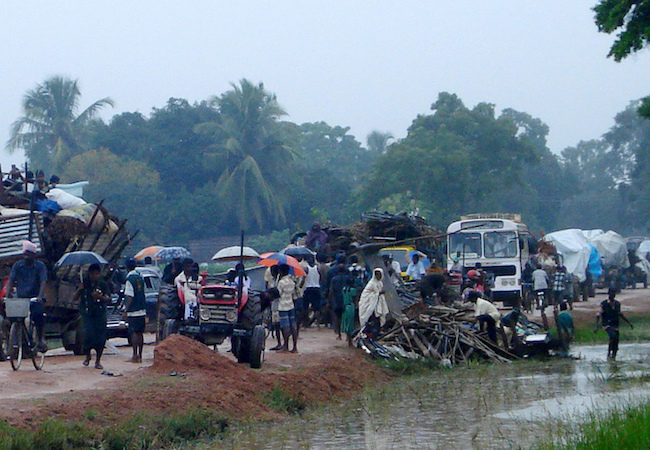
By Babar Khan Bozdar
Religion is directly as well as indirectly involved in civil war. The research is analyzed to check the presence of Religion in civil wars.
Since 1940 to 2000, incumbent government and rebels who identified with Islam were involved in thirty-four percent religious civil wars. Out of forty-two civil wars, Hinduism was involved in seven percent and Christianity was linked with twenty-one percent. When political elite feels an immediate threat, they will work to reframe their issues into religious touch.
The sixty years reveals two findings. First, the number of civil war increases because religion was a central point. Secondly, these religious civil wars were devastating and prolonged in nature.
The example of Sudan is the best fit in this regard and case of Al Qaeda attack on twin tower of the United States and pentagon in September 9/11. Civil wars between Hindus and Buddhist in Sri-Lanka, Hindus and Muslims in India as well as among the Muslims in Iraq. As a result, policymakers have focused greater attention on the subject of religion and organized violence.
“Religion is a very much complex concept, it includes belief in natural and supernatural being Prayer and communication with that being. There is a concept of heaven and paradise and between ritual and sacred objects”.
Judaism, Christianity, Islam and to the lesser extent Hinduism and Buddhism, each faith has its own belief system. Judaism, Christianity, and Islam may have a common interest and there is an element of violence in all these three religions. The logic of violence is simple. Such as the physical self is mortal and hence temporary; the religious self, however, is potentially immortal and eternal. Thus to sacrificing the temporary and mortal life to obtain eternal and permanent life is not only rational but also desirable. Sacrifice is the operational world because there is no way to empirically verify the existence of divine being and physical self-sacrifice is defending one’s faith. One particular respected in Christian and Muslim tradition.
Policymakers worried about the combination of religion and violence for at least three reasons.
First and foremost important factor is the indivisibility of religious doctrine and the promise of martyrdom threatens the two pillars of the state system as established in Europe following the end of a thirty-year war. Other two factors are Bargaining and Deterrence.
When religion becomes involved in public affairs it poses a potential threat to both domestic as well as international order. When religion hinders state ability to bargain, the combatant goes on killing each other long after. There is political, economic or social utility in religious traditions. Such as in Islam, Christianity, and Judaism, violent conflict is considered as the manifestation or will of God. Such conflict becomes a test for religious faith.
Religious touched violence tends to fuse temporal and religious authority which produces more form of authoritarian regime. It is obvious that religious fundamentalism is a threat to peace; it may be civil war or interstate conflict. There were Twenty-four religious civil wars data, among them in twenty-five civil wars religion was the central issue. While in seventeen, it was a periphery.
Centrality of religion in violent conflict
More the religion will be central, more will be violent conflict. It will not easily be resolved through peaceful means such as negotiation or arbitration. When religion moves from periphery to center, elites will be the party in escalating a non-violent conflict into violent conflict. If this is true then their outcome will be more decisive and to be more prone to reignite than civil wars fought over other issues.
Those civil wars in which religion is central are four times more deadly to non-combatant than civil wars. The mortality rate of central religious touched civil war is twenty-eight thousand while death rate of Periphery is seven thousand per annum. All civil wars are brutal but religious civil wars are more lethal. Religious civil wars pose increasingly local, regional and interstate problem. Religious outbidding played a key role in this scenario.
Since above timeline the number of Islam centered civil wars increased because of the high utility of religious outbidding for political elites. Western intervention in the Islamic state is also an important factor and it can’t be ignored. It is because to secure the access to cheap petroleum. Thus there is hatred among the peoples of the Islamic world against the west and they do such horrible acts which are harmful in nature and are linked to religious wars. Therefore more people practice religion and number of religious civil wars are growing.
Babar Khan Bozdar is a Research affiliate at Strategic Vision Institute Islamabad and he can be reached at [email protected]




